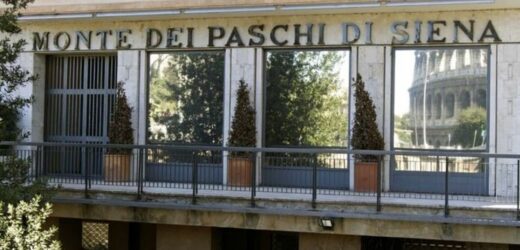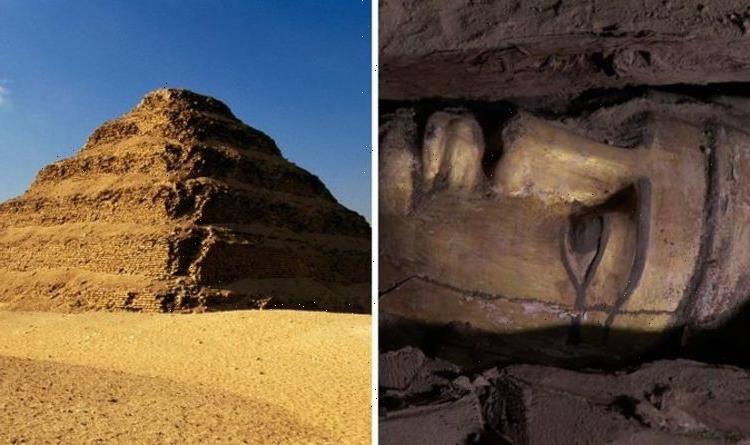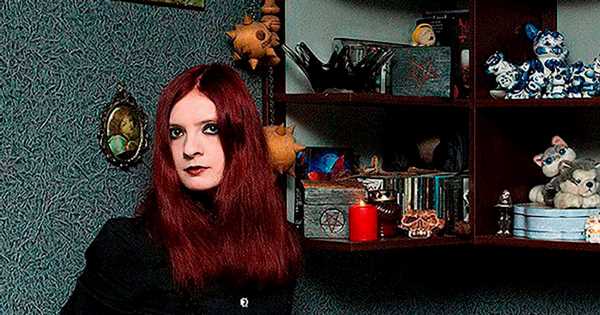New chief executive faces huge task to rescue Italian bank Monte dei Paschi
We use your sign-up to provide content in ways you’ve consented to and to improve our understanding of you. This may include adverts from us and 3rd parties based on our understanding. You can unsubscribe at any time. More info
Monte dei Paschi is an Italian institution but, the Tuscan bank has been struggling in recent years. The state had to rescue it from collapse in 2017, the 550-year-old lender has been ailing ever since. The Italian Government has faced a public outcry over its plans to relinquish state control by selling the bank back to the private sector.


Mr Draghi is facing a wave of criticism from the public as well as those within his own governing coalition over the sale.
The Italian government had to bail out the bank in 2017 with a hefty €5.4 billion (£4.58 billion) capital injection.
After this the Italian Treasury became the bank’s main shareholder, effectively making it state-owned.
The European Commission agreed to the rescue deal but said Italy had to leave Monte dei Paschi after five years.

As the end of 2021 draws nearer the EU’s deadline is fast approaching.
Critics say selling the bank to the private sector will come at a cost to Italian taxpayers.
Commentators say the sale will be great for Unicredit who are on track to buy Monte dei Paschi but that it will be bad news for Italian taxpayers.
They argue taxpayers will have to pay the cost of the non-performing loans and losses which will have to be siphoned off to make the sale more appealing.

Many onlookers are outraged Carla Ruocco, Chair of Italy’s parliamentary committee on the banking system told Politico: “If you sell an asset under a deadline and you have only one interested buyer, guess who is dictating conditions?”
Despite criticism, Draghi’s Government doesn’t appear to be backing down from its original agreement with the European Commission to sell its shares in the bank.
Finance Minister, Daniele Franco said selling Italy’s shares in the bank and merging it with another is “for the general interest [of everyone]”.
Monte dei Paschi has been haemorrhaging money for years.
DON’T MISS:

Despite its bailout, the bank performed very badly in the European Banking Authority’s “stress test”.
They found the bank’s entire capital would be wiped out by a hypothetical strong economic dip.
With the pandemic continuing to throw up financial problems for the world, the Italian Government doesn’t appear to be prepared to take that risk.
Regional politics are also at play when it comes to selling the bank to Unicredit.
The bank’s potential buyer, Unicredit, is closely linked to regional politics and the centre-left Democratic Party, who form a part of the Draghi’s coalition.
The future of Monte dei Paschi has been closely tied to the local administration of Siena, which was governed by centre-left parties until 2018.
The 2017 bailout was carried out by the then Finance Minister Pier Carlo Padoan from the Democratic Party, who’s now Unicredit’s president.
Opposition parties have condemned the move to sell the bank, Giorgia Meloni, the leader of the Brothers of Italy party said: conflicts of interest between the Democratic Party and finance are harmful to banks and fatal to taxpayers, as the events of recent years have shown.”
The plans to sell the bank have sparked tensions within Draghi’s governing coalition as well as a backlash by Italian taxpayers.
Source: Read Full Article


